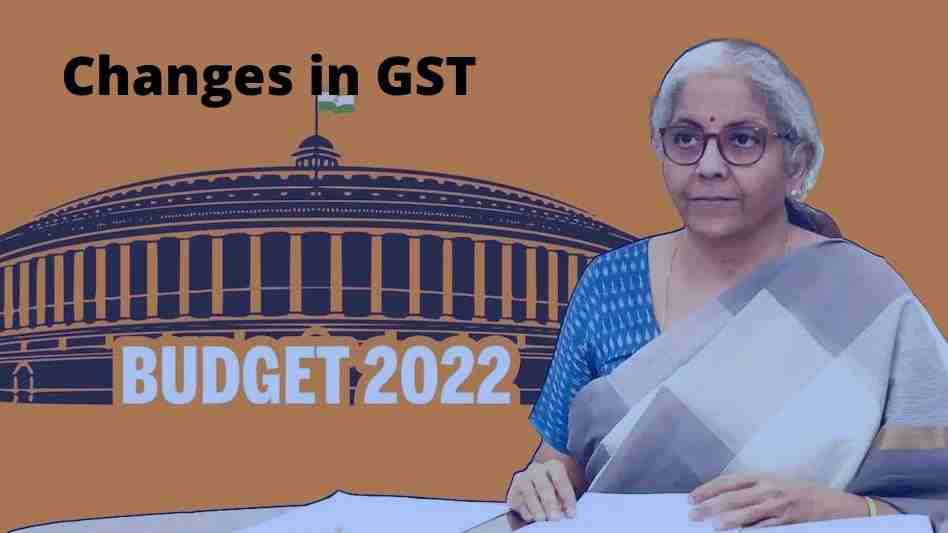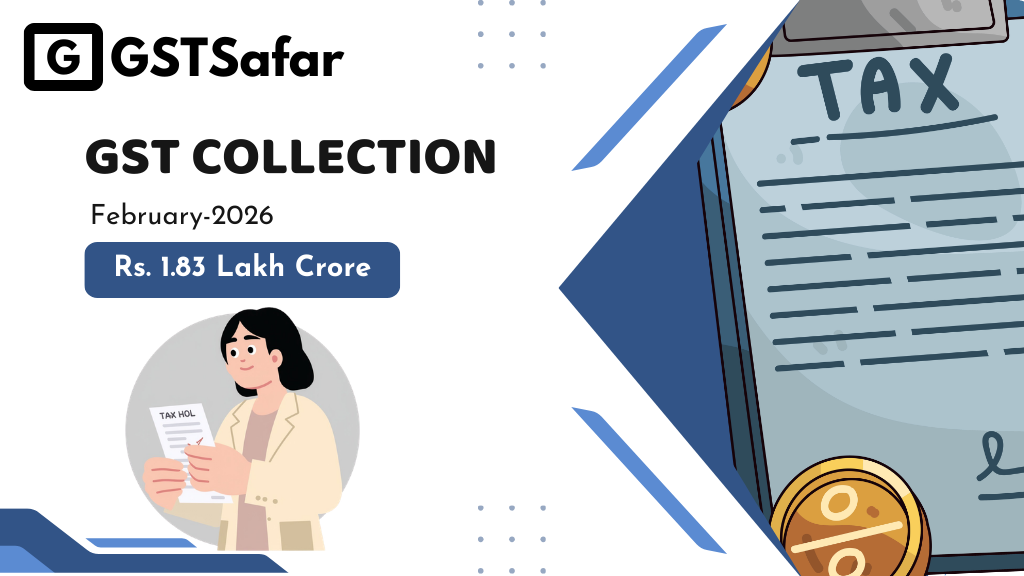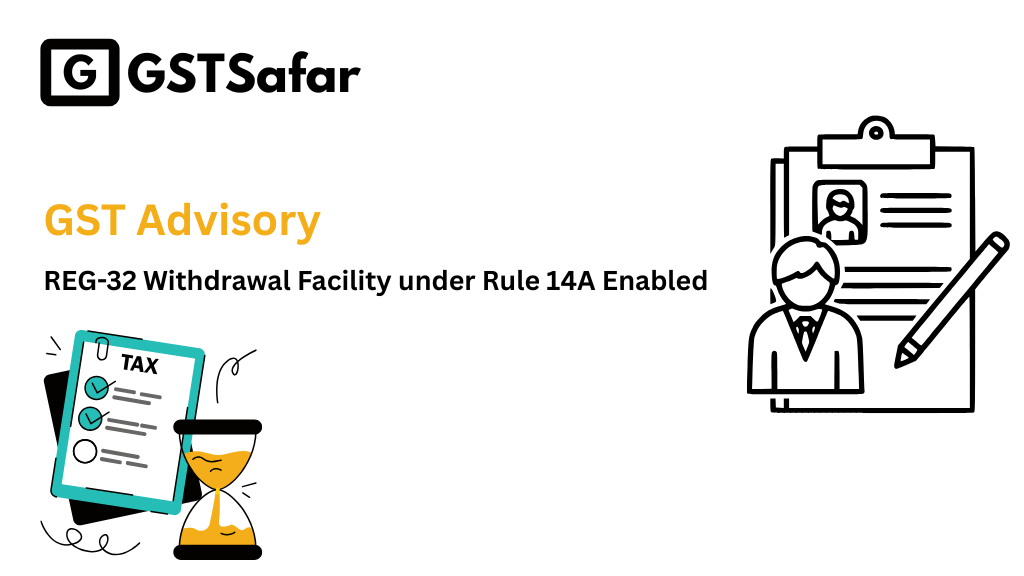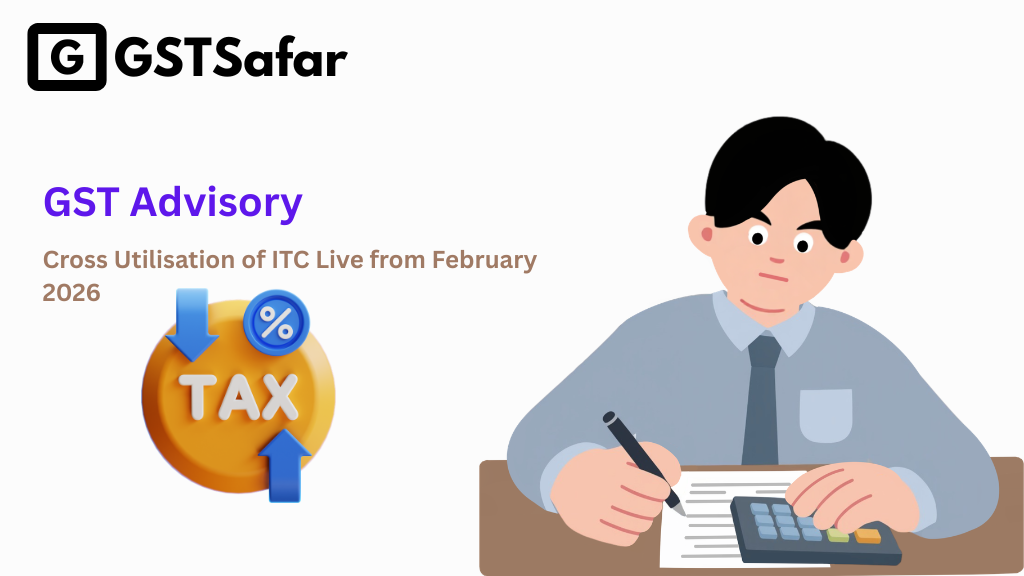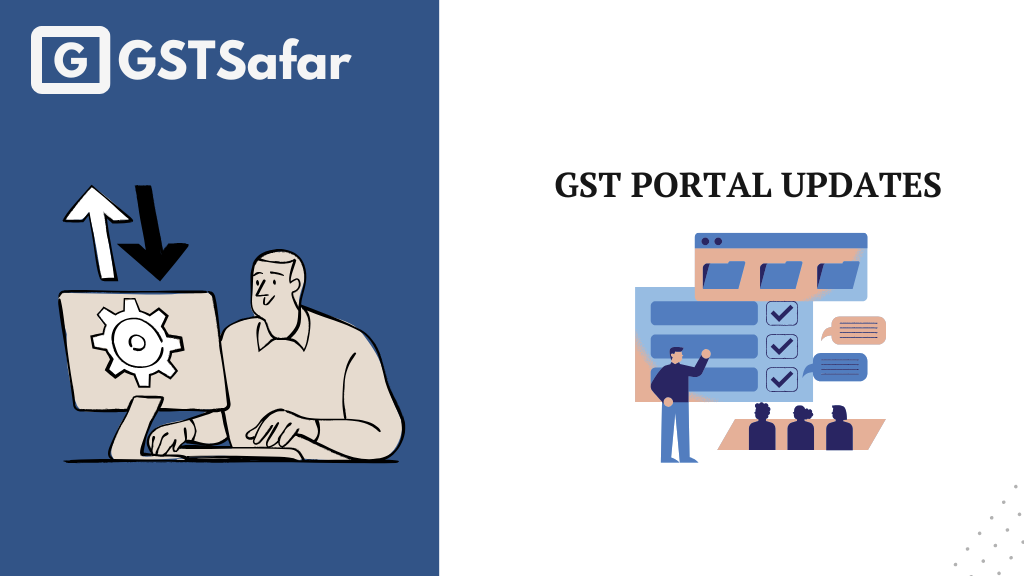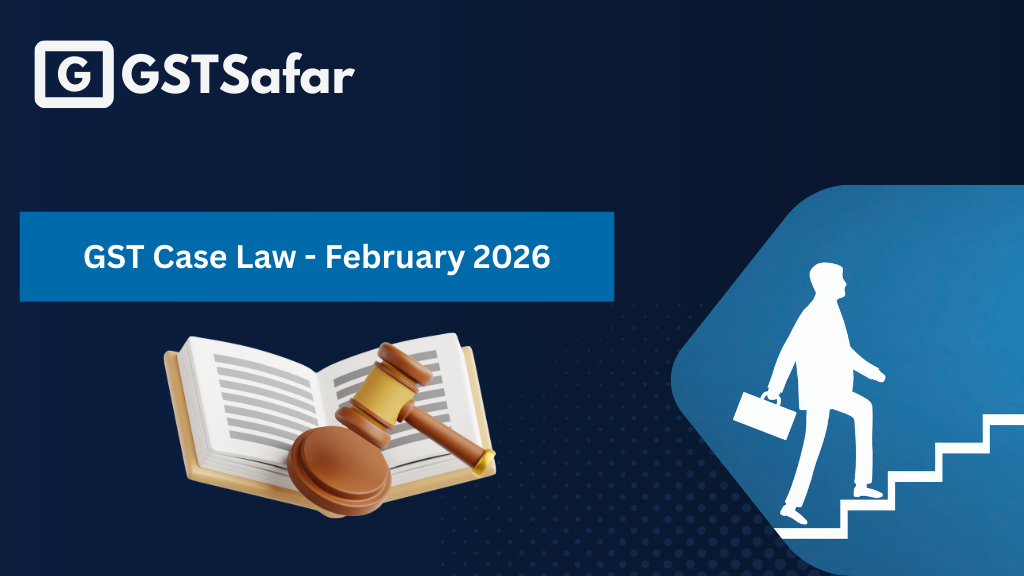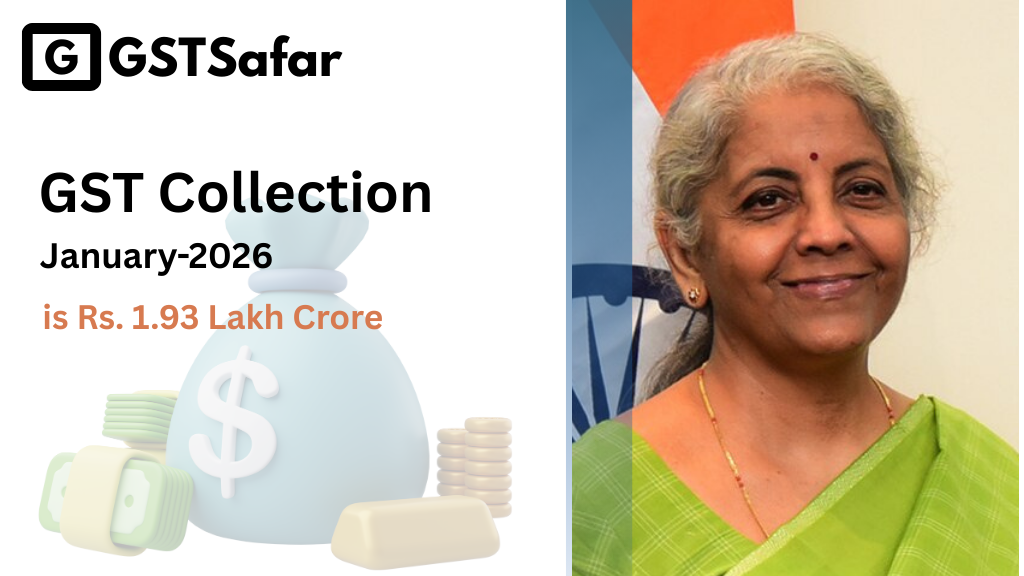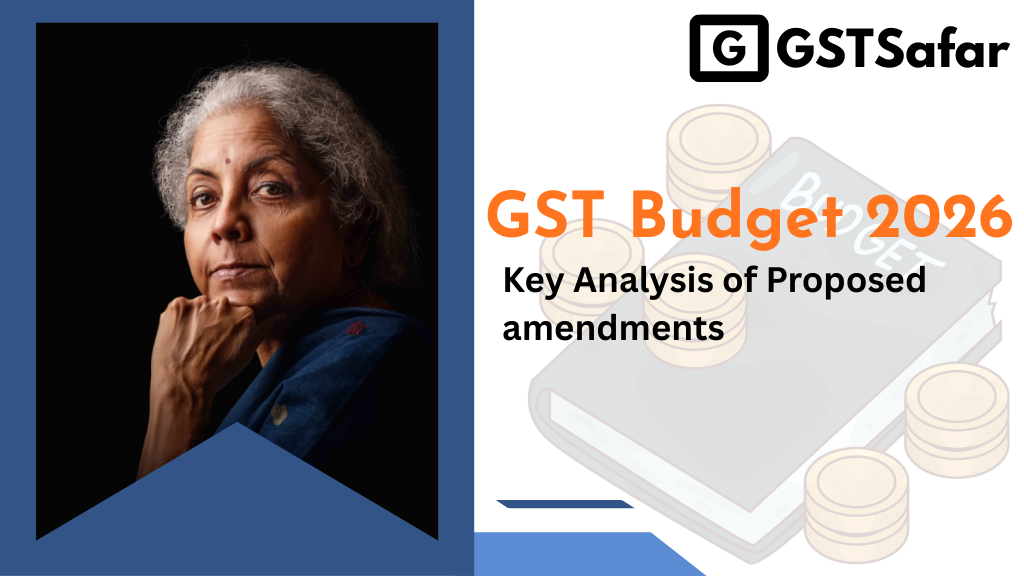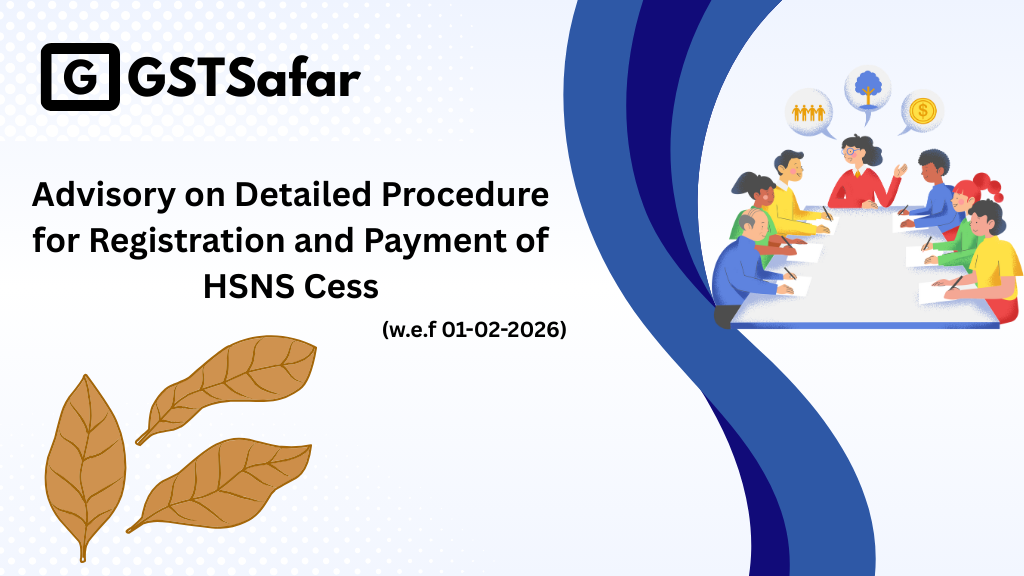Table of Contents
ToggleIntroduction
GST budget 2022-23. The finance bill 2022 was presented in Lok Shabha on 1/02/2022by Honorable Finance Minster Nirmala Sitharaman
In GST, many changes have been proposed like changes in ITC provisions, extension of time limit for issuance of credit notes, changes in furnishing details of outward supply, changes in interest provisions and any other changes. Clauses 99 to 123 of this Finance Bill are for GST. Clauses 99 to 113 shall come into force on such date as the Central Government may, by notification in the official gazette, appoint. Clauses 114 to 123 will come into force on enactment of finance bill in parliament. GST 2022 changes.
This article has been prepared topic wise with our detailed analysis. References of relevant clauses of Finance Bill 2022 have been given at top each topic. Please kindly note that wherever the word CGST Act 2017 is mentioned, it is to be understood that there will be identical change to similar act SGST and UTGST Acts of states and Union Territories. Budget 2022 highlights. Changes related to GST in Union Budget 2022
ITC restriction in GST
One more restriction for taking Input Tax Credit -GST changes in budget 2022. ITC restriction in 2022.
- One more restriction in claiming ITC is being imposed.
- ITC may be availed only when such credit has not be restricted in the detailed communicated to the registered person under Section-38
- New clause (ba) is being inserted in sub section (2) of Section 16 of CGST Act 2017. This new clause says that ITC may be availed only when such credit has not be restricted in the detailed communicated to the registered person under Section-38
- Now at the same time Section 38 is also being substituted by Clause 103 of this Finance Bill 2022
- This auto-generated statement (GSTR-2B) will contain details of ITC in following two manner
- ITC may be availed (We will use word part-1 for this presentation)
- ITC cannot be availed (we will use word part-2 for this presentation)
- Now the ITC which cannot be availed under Part-2 will be due to any of the following reasons (as per substituted Section -38)
- Supplier has defaulted in payment of tax
- Output tax payable as per GSTR-1 exceeds output tax payable as per GSTR-3B
- Supplier has claimed excess ITC
- Supplier has discharged output tax liability in contravention of Section 49(12) of CGST Act
Note: Sub section 12 is being newly inserted in section 49 prescribing maximum output tax liability that can be discharged by ITC. Finance bill 2022 summary.
Our Analysis
- What is input tax credit in GST and how ITC is availed and utilized have always been the major questions to taxpayer. Now this one more restriction in input tax credit in GST is very important to understand.
- ITC cannot be availed means ITC restricted and only non-restricted ITC may be availed
- Important observation is that the word “may” has been used in new clause (ba) of said section. Means ITC mentioned under the part-1 “ITC may be availed” in auto generated statement does not mean ITC can be availed always. Taxpayer will need to follow all other conditions of section 16(2) and only on subject of fulfillment of all other conditions ITC can be availed.
- As on today for input tax credit entitlement, statute provides that assessee shall be in possession of tax invoice, assessee has received the goods or services, tax has been paid and return has been filed. One can refer input tax credit rules under gst. After the amendment one more condition is required to be satisfied and assessee shall verify that credit is not restricted under the auto generated report to be provided as per section 38.
- Such input tax credit restrictions under gst is not a sing of ease of doing business
- Here the input tax credit eligibility is dependent on supplier which very harsh and impractical provisions according to me due to following reasons
- If any company are having thousands or lakhs of suppliers, then there could be huge restrictions of ITC in GSTR-2B even such ITC are absolutely eligible to such company
- Practically not possible to have the control over supplier to check parameters about his availment and discharge of output tax liability in proper legal way.
- There are many genuine reasons where GSTR-1 taxable supply can exceed GSTR-3B taxable supply
- The question arises for consideration over here is when Government has the power to issue the notices and recover the tax from the registered taxpayer where they have also been provided with the power to initiate prosecution and put the tax payer behind the bar; in such scenario is this justifiable to put up the restriction on the recipient to reverse credit? In my view, it is totally unjustified to punish the recipient for the act of supplier. Time and again various courts have held that you cannot impose a condition on the taxpayer which is impossible for the tax payer to perform. Therefore, I believe that this is completely deterrent and will end up with the more and more litigation.
- If the buyer has acted bonafide, prima facie there are no grey areas in a transaction and the buyer has paid the tax to the seller, the buyer should be absolved of his responsibilities to ensure that the tax has been paid to the government. If the seller fails to do it, it is the duty of the tax enforcement machinery, which has the required financial resources, manpower and legal authority, to track the errant seller and realise the same from him. The seller himself is a government representative, stepping in its shoes, when he has been given the Registration by the Department itself and the responsibility to deposit the tax after collection from purchaser has been cast on his shoulders. The restrictions put in this new clause 2b of Section 16(2). Section 41 in respect of purchasing dealer is arbitrary, irrational and unduly harsh. It is tantamount to violation of Article 14 of the Constitution. Article 14 talks about equality before law and states that the State shall not deny any person equality before the law or the equal protection of the laws within the territory of India. GST proposals in budget 2022. Conditions for claiming ITC.
Changes in GST Input Tax Credit time limit 2022
Time limit for taking ITC is being enhanced
Time limit for taking input tax credits is being enhanced as under
| At present | After the amendment |
| Section 16(4) of CGST Act 2017A registered person shall not be entitled to take input tax credit in respect of any invoice or debit note for supply of goods or services or both after the due date of furnishing of the return under section 39 for the month of September following the end of financial year to which such invoice or debit note pertains or furnishing of the relevant annual return, whichever is earlier. | Section 16(4) of CGST Act 2017A registered person shall not be entitled to take input tax credit in respect of any invoice or debit note for supply of goods or services or both after 30th November following the due following the end of financial year to which such invoice or debit note pertains or furnishing of the relevant annual return, whichever is earlier. |
Input Tax Credit Example
- For example at present ITC of invoices and debit notes raised in 2021-22 can be availed within 30th September, 2022 or date of filling of annual return whichever is earlier.
After effect of this amendment we can say that ITC of invoices and debit notes raised in of 2021-22 can be availed within 30th November, 2022 or date of filling of annual return whichever is earlier.
Changes in time limit for Credit Notes in GST
Time limit for issuing credit notes is being enhanced
Time limit for issuing credit notes is being enhanced as under
Our Analysis
| At present | After effect of amendment |
| Section 34(2) of CGST Act 2017 Any registered person who issues a credit note in relation to a supply of goods or services or both shall declare the details of such credit note in the return for the month during which such credit note has been issued but not later than September following the end of the financial year in which such supply was made, or the date of furnishing of the relevant annual return, whichever is earlier, and the tax liability shall be adjusted in such manner as may be prescribed: | Section 34(2) of CGST Act 2017Any registered person who issues a credit note in relation to a supply of goods or services or both shall declare the details of such credit note in the return for the month during which such credit note has been issued but not later than 30th November following the end of the financial year in which such supply was made, or the date of furnishing of the relevant annual return, whichever is earlier, and the tax liability shall be adjusted in such manner as may be prescribed: |
One should refer credit note rules under gst. Reason for issuing credit note has been given in Section 34 of CGST Act 2017. Credit note should be issued in prescribed credit note format.
Example of time limit for raising credit note in gst
How to adjust credit note in gstr-3b
- For example at present credit notes for supplies made during 2021-22 can be issued till 30th September, 2022 or date of filling of annual return whichever is earlier.
Note: It can be declared in return up to September-2022 only if it is issued till 30/09/2022
After effect of this amendment we can say that credit notes for supply made during 2021-22 now can be issued till 30th November, 2022 or date of filling of annual return whichever is earlier.
Note: That means it can be declared in return up to November -22 in this example
Our Analysis
- The proposed amendments are delinking the due date of filing of September return, which is prior to the date by which accounts of the company gets finalized as per the income tax statutory provisions.
- Income Tax provisions provide that assesse needs to finalize his accounts and returns to be filed by 31st October after completion of the financial year.
- Hence, with this amendment, assesse will get a fair time to avail or reverse the credit as their accounts will get finalized by 31st October. Therefore, the assesse who is timely complying with the law will be able to claim or reverse the credit as the case may be without any lapse of time. Reason for issuing credit note.
Changes in on suo-moto cancellation of registration in gst
Changes in on suo-moto cancellation of registration for Composite tax payer
Those who are registered under composition scheme in gst, there is change in suo moto cancellation for such composite tax payer. Registrations in gst act gives the provision for cancellation of registration in gst and revocation of cancellation of registration. First lets understand what is suo moto cancellation of registration in gst? When proper officer in gst cancels the registration on contraventions of certain provisions of gst by tax payer, it is suo moto cancellation of registration. There could be many reasons for suo moto cancellation of gst registration. Means it is cancelled by proper officer of gst without any application for cancellation of registration. No doubt there is provision also in gst for revocation of suo moto cancellation of gst registration.
The following change is being proposed for suo moto cancellation of gst registration of taxpayer registered in composition scheme gst under Section 10 of CGST Act 2017
| At present | After amendment |
| Clause (b) of Sub Section 2 of Section 29 of CGST Act 2017 | Clause (b) of Sub Section 2 of Section 29 of CGST Act 2017 |
| The proper officer may cancel the registration of a person from such date, including any retrospective date, as he may deem fit, where,– a person paying tax under section 10 has not furnished returns for three consecutive tax periods; o | The proper officer may cancel the registration of a person from such date, including any retrospective date, as he may deem fit, where,– a person paying tax under section 10 has not been furnished return for a financial year beyond three months from the due date of furnishing the said return |
Let’s understand the present situation by example
| Return Period | Due Date | Return Status |
| 2019-20 | 30/04/20 | Not filed |
| 2020-21 | 30/04/21 | Not filed |
| 2021-22 | 30/04/22 | Not filed |
In this example, in present scenario, proper officer can cancel registration of this taxpayer after 30/04/2022 as return for three consecutive tax period not filed. But as the returns GSTR-4 is annual, three consecutive period is too large. GST budget 2022 notification.
Let’s understand the situation after the amendment
| Return Period | Due Date | Return Status |
| 2020-21 | 30/04/21 | Filed |
| 2021-22 | 30/04/22 | Not filed |
In this example, as per amendment, proper officer can cancel registration of this taxpayer after 30/04/2022 even taxpayer has not filed return of only single year. Earlier it was three years
Our Analysis
- Suo moto meaning in gst has already been explained above
- Based on comparative analysis of both these example, one can conclude that ultimately power of cancellation of registration of composite tax payer is being enhanced as now the officer can cancel the registration within short period
- Before April-2019, there was system to file return on quarterly basis for composition tax payer paying tax under Section 10 of CGST ACT 2017
- But there after Notification 20/2019 Central tax dated 23/04/2019 made changes in Rule 62 of CGST Rules, 2017.
- As per changes, statement of payment of self-assessment tax under CMP-08 is now required to be filed on quarterly basis and returns period shifted from quarter to annual
- But parallel change was not made in clause (b) of sub Section (2) of 29 of CGST Act 2017 and consequently proper officer were not able to cancel the registration of composition tax payer even they have not field returns for 2019-20 and 20-21.
- So now in order to resolve this issue government has now finally amended clause (b) of Sub Section (2) of Section 29 of CGST Act 2017 and now the proper officers will be able to cancel the registration of composition tax payer once they do not file return of single year. Union budget 2022-23
Changes in outward supply in gst
Restrictions are being imposed in outward supply (GSTR-1) and provision of two way communication is being done away
Changes in Section 37(1) of CGST Act 2017
| At present | After amendment |
| Section 37(1) of CGST Act 2017 Every registered person, other than an Input Service Distributor, a non-resident taxable person and a person paying tax under the provisions of section 10 or section 51 or section 52, shall furnish, electronically, in such form and manner as may be prescribed, the details of outward supplies of goods or services or both effected during a tax period on or before the tenth day of the month succeeding the said tax period and such details shall be communicated to the recipient of the said supplies within such time and in such manner as may be prescribed: | Section 37(1) of CGST Act 2017 Every registered person, other than an Input Service Distributor, a non-resident taxable person and a person paying tax under the provisions of section 10 or section 51 or section 52, shall furnish, subject to such conditions and restrictions and in such form and manner as may be prescribed, the details of outward supplies of goods or services or both effected during a tax period on or before the tenth day of the month succeeding the said tax period and such details shall subject to such conditions and restrictions within such time and in such manner as my be prescribed, be communicated to the recipient of the said supplies |
Our Analysis
- New clause (ba) in Section 16(2) of CGST Act 2017 is being inserted so as to restrict taxpayer to avail ITC which is restricted in communication to registered person under Section-38
- Now this auto-generated statement (GSTR-2B) of section 38 is purely dependent upon GSTR-1 of sction-37
- So this change in sub-section 37(1) is being made in to comply with the proposed changes in Section 16(2) of CGST Act 2017 as we have already seen above.
- One can observe that Conditions and restriction are proposed to be inserted in sub-section 1 of section 37. At present it’s only for form and manner.
Certain more changes in Section 37
| At present | After amendment |
| First Proviso of Section 37(1) of CGST Act 2017 Provided that the registered person shall not be allowed to furnish the details of outward supplies during the period from the eleventh day to the fifteenth day of the month succeeding the tax period: | First Proviso of Section 37(1) of CGST Act 2017 This proviso is going to be omitted after effect of amendment |
| Extract of Section 37(2) of CGST Act 2017 Detailed communicated under Section 38 to registered person shall either be accepted or rejected and details furnished in Sub-Section 37(1) shall be amended accordingly | Section 37(2) of CGST Act 2017 This sub section is going to be omitted after effect of this amendment |
| Extract of Section 37(3) of CGST Act 2017 Details furnished under Section 37(1) which remain unmatched under Section 42/43 to be rectified and pay tax No rectification of error or omission in respect of the details furnished under sub-section (1) shall be allowed after furnishing of the return under section 39 for the month of September following the end of the financial year to which such details pertain, or furnishing of the relevant annual return, whichever is earlier | Section 37(3) of CGST Act 2017 Reference to unmatched details under Section42/43 are being removed in this sub section as Sections42/43 both are being omitted No rectification of error or omission in respect of the details furnished under sub-section (1) shall be allowed after 30th November following the end of the financial year to which such details pertain, or furnishing of the relevant annual return, whichever is earlier |
Our Analysis
- Government originally introduced the concept of GSTR-1, GSTR-2 and GSTR-3 and section 37, 38, 39, 42 and 43 have been drafted containing online matching concepts.
- But everyone knows that this online matching concept of outward supply with inward supply was absolutely failed due to failure of GST portal and government introduced temporary form GSTR-3B which has now become permanent in the form of return
- GSTR-2 and GSTR-3 concept was failed and auto update in GSTR-1 was also failed
- Therefore this online matching provisions are of no use and therefore, government has now proposed to done away here the first proviso to Section37 (1), Section 37(2) is being omitted and and Section 37(3) is being amended as Section 42 and 43 are completely being omitted
Important changes is that the time limit for rectification in GSTR-1 (outward supply) is now being enhanced to 30th November or date of filling of annual return whichever is earlier
Changes in filling GSTR-1
Restriction in filling of GSTR-1 if its not filed for any earlier period
- Now registered person shall be entitled to file GSTR-1 only if GSTR-1 for earlier tax periods have been filed
- New Sub Section 4 in Section 37(1) of CGST Act 2017 is being inserted as under
Provided that the Government may, on the recommendations of the Council, by notification, subject to such conditions and restrictions as may be specified therein, allow a registered person or a class of registered persons to furnish the details of outward supplies under sub-section (1), even if he has not furnished the details of outward supplies for one or more previous tax periods.
Our Analysis
- At present, portal does not allow filling of GSTR-1 if it’s not filed for any earlier tax period. But this restriction was without any law in the GST
- Now the official restriction is being imposed by government by introducing new sub Section 4 in section-37
Changes in return by non resident taxable person in gst act
Changes in due date of return by non-resident taxable person (GSTR-5)
Due date of GSTR-5 which is filed by Non Resident Taxable Person is being changed as under
| At present | After amendment |
| 20th day after the end of calendar month | 13th day after the end of calendar month |
Option to pay tax in lieu of self-assessment tax
- There is provision for self assessment under gst
- Now the registered person shall have option to pay tax of other amount instead of self-assessment tax determined as per return
- Option to pay tax in lieu of self assessment tax in gst portal willl be available
- This other amount which can be paid in lieu of self-assessment tax can be determined in such manner and subject to such conditions and restrictions as may be prescribed
Time limit for rectification of error or omission in return is being enhanced
Change is being made in time limit for rectification of error or omission or incorrect particulars in GSTR-3B (return) as under
| Form | At present | After the effect of amendment |
| GSTR-3B-Return | Due date for furnishing of return for the month of September or second quarter following the end of the financial year to which such details pertain, or the actual date of furnishing of relevant annual return, whichever is earlier. | 30th November following the end of the financial year to which such details pertain, or the actual date of furnishing of relevant annual return, whichever is earlier |
| GSTR-8- Statement by Electronic Commerce Operator | Due date for furnishing of return for the month of September following the end of the financial year to which such details pertain, or the actual date of furnishing of relevant annual return, whichever is earlier. | 30th November following the end of the financial year to which such details pertain, or the actual date of furnishing of relevant annual return, whichever is earlier |
Changes in filling of GSTR-3B
GSTR-3B can be filed only if GSTR-1 is filed
Now registered person shall not be allowed to file GSTR-3B for tax period if GSTR-1 of that tax period is not filed. Let’s understand as under
| At present | After amendment |
| If GSTR-3B of any previous tax period not filed, then GSTR-3B of current tax period cannot be filed | If GSTR-3B of any previous tax period not filed, then GSTR-3B of current tax period cannot be filed If GSTR-1 of current tax period is not filed then, GSTR-3B of current tax period cannot be filed |
Our Analysis
- At present portal does not allow filling of GSTR-3B if GSTR-1 of the same tax period is not filed. But this restriction was without any law in the GST
- Now the official restriction is being imposed by government by amending sub section 10 of Section 39 of CGST Act 2017
GSTR-3B can be filed even there is non-filing of GSTR-3B of earlier tax period or non-filling of GSTR-1 current tax period in certain circumstances
- As we have seen above, GSTR-3B cannot be filed if it’s not filed for earlier tax period. As well we have seen that in this finance bill, it is proposed that GSTR-3B for a tax period cannot be filed even GSTR-1 of the same tax period is not filed.
- But Government on the recommendations of the Council, by notification, subject to such conditions and restrictions as may be specified therein, allow a registered person or a class of registered persons to furnish GSTR-3B even not furnished for earlier tax period or has not furnished GSTR-1 of same tax period
Changes in Input Tax Credit on self assessment
Self –assessed credit availment only subject to payment of tax paid by the supplier
- Self –assessed credit will be now subject to payment of tax paid by the supplier
- Once registered person avails ITC which is self- assessed (means as per GSTR-3B), the same has to be reversed if tax on that not paid by supplier
- Such reversal will be along with interest
- However, where the said supplier makes payment of the tax, then such registered person shall be entitled to re-avail ITC
Our Comment
- More one restriction in availment of ITC. Here the entitlement of ITC is dependent on supplier.
- In my view, it is totally unjustified to punish the recipient for the act of supplier. Various courts has held that you cannot impose a condition on the taxpayer which is impossible for the tax payer to perform. Therefore, I believe that this is completely deterrent and will end up with the more and more litigation.
Section42, 43 and Section 43A of CGST Act are being omitted
The concept of Matching, reversal and reclaim of ITC /reduction in output liability is being abolished
Section42, 43 and Section 43A have been proposed to be omitted in this budget
Our analysis
- First lets understand what is Section 42, 43 and 43A?
Section-42 is for Matching, Reversal and reclaim of input tax credit
This section contains the provision of matching of inward supply with outward supply, acceptance of ITC by recipient on matching figures, communication of discrepancy if any to supplier and recipient, increase in outward liability of recipient on non-rectification of discrepancy by supplier
Section-43 is for Matching, Reversal and reclaim of reduction in output tax liability
This section contains the provision of reduction in output tax liability of supplier with corresponding reduction in ITC of recipient, communication of discrepancy if any to supplier and recipient, increase in outward liability of supplier recipient on non-rectification of discrepancy by recipient
Section 43A is for Procedure for furnishing return and availing ITC
- This section is for validation, modification, or deletion of supplies furnished by suppliers , procedure for availing ITC and verirfiation of the same
- This section was inserted by CGST Amendment Act 2018 but its not made effective till date.
Now let’s understand why these sections are being omitted?
- There sections are like unused purchased goods by an woman for her home
- Section 42 and 43 are there since enactment of GST Act
- These both the sections were to play role to perform the functions of GSTR-1, GSTR-2 and GSTR-3
- But as the portal failed to implement GSTR-2 and GSTR-3, these sections were lying in GST Act like old unused goods in home
- Therefore the government now finally decided to remove such garbage in dustbin
- Section 43A was enacted and it was to somehow support the new gst return systems with restriction in claiming ITC. As now the new clause (ba) is being inserted in Section 16(2) of CGST Act 2017, and new GST return system is not going to be implemented, there is no sense to make effective this section and therefore finally is going to be omitted.
Changes in late fees in gst
Provision for Late fees for inward supply is being abolished and late fees introduced for GSTR-8
Late fees for inward supply is being abolished
- GST late fee per day is charged
- Late fees for inward supply under Section 38 will not be levied now
- Section 47 of CGST Act 2017 is being amended now to abolish the late fees for inward data under Section 38
- Section 38 which is effective today is for entering inward data in GSTR-2 by recipient.
- But as above mentioned, GSTR-2 never could be implemented by Government and there was no any role on part of recipient to enter the inward details in GSTR-2.
- Now the whole Section 38 is being substituted and even in new proposed substituted section, there is no provision to enter inward details by recipient
- So late fees provisions for inward data was of no use since the beginning and will not be of any use even in future, government has finally decided in this budget to demolish the provision of late fees for inward data
Late fees for GSTR-8 statement is being introduced
- This budged has proposed to introduce provision for charging late fees for late filling of GSTR-8
- GSTR-8 is a statement for collection of tax by Electronic Commerce Operator on net collection on behalf of suppliers who supply through ECO
Restriction in utilization of Electronic Credit Ledger
- The amount available in Electronic Credit Ledger is used for payment of output tax in prescribed manner and subject to conditions as prescribed
- Now in this budget the government has proposed to impost the restriction as well for utilization of Electronic Credit Ledger
- For that sub section 4 of Section 49 of CGST Act 2017 is being amended
- These restrictions will be prescribed by changes in rules.
Electronic credit ledger meaning
Once the input tax credit in gst is availed, the same is credited to Electronic Credit Ledger and once it is utilized, it is debited from Electronic Credit Ledger. Thus electronic credit ledger shows the amount of Input Tax Credit availed by taxpayer, utilized by taxpayer and palace of input tax credit of taxpayer . If one wants to know that how to utilize electronic credit ledger in gst for that relevant provisions in gst need to be studied in detail
Changes in relation to Output Tax Liability under gst
Maximum limit of output Tax liability which can be discharged through Electronic Credit Ledger
- New sub section 12 is being inserted in Section 49 of CGST Act 2017
- This new section will specify the maximum output tax liability which can be discharged by electronic credit ledger
- Such restrictions will be prescribed by changes in rules.
Changes in provisions of Electronic Cash Ledger in gst
Now it would be possible to transfer amount from one Electronic Cash Ledger to another Electronic Cash Ledger between the distinct persons.
This change can be explained by following table
| At present | After the effect of amendment |
| Amount of tax, interest, penalty, fees or any other amount in Electronic Cash Ledger can be transferred amongst form one tax to another tax in GST e.g from CGST to IGST etc | Amount of tax, interest, penalty, fees or any other amount in Electronic Cash Ledger can be transferred amongst form one tax to another tax in GST e.g from CGST to IGST etc IGST and CGST can be transferred from one GSTN to another GSTN of the same PAN. In other words between distinct person under Section 25(4) and 25(5) of CGST Act 2017 |
Our Analysis
- At present any amount in form of tax, interest, penalty, fees or any other amount can be transferred from CGT to IGST, SGST, UTGST or CESS or it can be transferred from any tax to anther tax in GST in any manner.
- But if more than one registration in GST taken on same PAN, then it is not possible at present to transfer the amount from Electronic Cash Ledger of one GSTN to Electronic Cash Ledger to another GSTN even both GSTN are on same PAN.
- So now it is prosed in this budget to allow transfer CGST and IGST from Electronic Cash Ledger of one GSTN to Electronic Cash Ledger of another GSTN of the same PAN.
- However, this relaxation is given only for CGST and IGST. Means amount in form of late fees, penalty or any other amount will not be a transferred from Electronic Cash Ledger of one GSTN to Electronic Cash Ledger to another GSTN
Changes in Interest on itc availed but not utilised in gst
Interest on ITC only if wrongly availed and utilized.
18% Interest will be levied only if input tax credit wrongly availed and utilized. The great relaxation is that this change is announced retrospectively from 01/07/2017.
Our Analysis
- Earlier there was doubt whether interest on wrong availment of input tax credit under gst is applicable or not
- Sub Section 1 of Section 50 simply says that interest is applicable to person who liable to pay tax. The question is that when ITC is availed but not utilized, is person liable to pay interest on it?
- But now as the government clear cut mentioned in new substituted section 50(3) that interest will be levied when ITC is wrongly claimed and utilized
- So now, there will not be any question if ITC wrongly taken but reversed the same without utilization. In other words interest on excess input tax credit under gst will not be applicable if the same has not been utilized.
- Now the question is that what will be rate of interest?
- Notification 13/2017 Central Tax dated 28.06.2017 notified the Interest 24% for issued cover under Sub Section 3 of Section 50 of CGST Act.
- But in this budget, the government has proposed to reduce even interest rate covered under the said section also from 24% to 18% by Clause 115 of Finance Bill 2022 (similar change made in IGST also by Clause 118 of Finance Bill 2022)
- So finally we can say that 18% Interest will be charged if wrong ITC is availed and utilized. Again let me mention that interest will not be applicable if ITC wrongly availed but not utilized.
- Earlier charging the interest on excess claim of ITC was only in respect of situations covered under Section 42(10) and Section 43(10) of CGST Act 2017
- Both these sections were useless, and there was no meaning of even for interest provision under sub section 3 of Section 50
- Both these section 42 and 43 have been proposed to be omitted in this budget due to their non-usage.
- Therefore now this sub section 3 of section 50 has been substituted with the omission of reference of both section 42(10) and Section 43(10) of CGST Act 2017.
Changes in time limit for claiming refund under gst
Time limit for claiming refund in the case of agency like UNO enhanced
- Time limit for claiming refund on inward supplies in the case of following agencies have been enhanced
- United Nations Organization
- Multilateral Financial Institution
- Organization notified under the United Nations Act 1946
- Consulate or Embassy of friend countries
- Any other person/persons notified under Section 55
Time Limit of refund claim has been enhanced as under
| At present | After amendment |
| Refund application can be made within 6 months from the last day of quarter in which inward supply was received | Refund application can be made within 2 years from the last day of quarter in which inward supply was received |
Scope of withholding refund is being enhanced
- At present refund can be withheld by proper officer in following case
Where refund is due for Unutilized ITC in the case of zero rated supply or in the case inverted duty structure, then such refund can be withheld by proper officer if registered Person claiming such refund has defaulted in filling return or payment of any dues to government. These refund actually said to be due under sub Section-3 of Section 54.
- Not the reference of sub Section 3 of section 54 is being omitted from section 10 of section 54 and therefore we can say that in any case of refund, proper office will be entitled to withhold the refund if registered person claiming such refund has defaulted in filling of return or in making payment dues to government.
Changes in relation to zero rated supply refund
Relevant date for refund in the case of Zero Rated Supply is being specified now
- Relevant date for claiming refund in the case of zero rated supply to SEZ Unit/Developer has now been specified. It would be to be due date of return under Section 39. Means due date of GSTR-3B
Our Analysis
- Refund of unutilised itc on zero rated supplies can be claimed if there is zero rated supply without payment of IGST and
- Refund can be claimed within 2 years from the relevant date as per Section 54(1) of CGST Act 201
- Explanation -2 to section 54 gives the list of relevant date for various types of refund, but its salient about relevant date in the case of zero rated supply to SEZUnit/Developer
- So now the government is going to amend this explanation by inserting a new clause (ba) in explanation -2 of Section 54 specifying relevant date for refund in the case of zero rated supply to SEZ Unit/Developer
- So now, the time limit for claiming refund in the case of zero rated supply to SEZ Unit/Developer shall be the two years from the due date of return in which such zero rated supply declared.
Note
Zero rated supply in gst means export supply and or supply to SEZ unit/developer.
Electronic Portal gst.gov.in notified retrospectively from 28.06.2017
Clause 114 seeks to amend notification number G.S.R. 58(E), dated the 23rd January, 2018 to notify www.gst.gov.in, retrospectively, with effect from 22nd June, 2017, as the Common Goods and Services Tax Electronic Portal, for all functions provided under Central Goods and Services Tax Rules, 2017,
- Notification 04/2017 Central Tax dated 19.06.2017 was issued notifying www.gst.gov.in as the common electronic portal for facilitating registration, payment of tax, furnishing returns, computation and settlement of integrated tax and electronic way bill
- Then this notification was abolished by new Notification 06/2018 Central Tax dated 23.01.2018 [G.S.R 58(E)]
- specifying www.gst.gov.in as the portal for facilitating registration, payment of tax, furnishing returns, computation and settlement of integrated tax
- specifying www.ewaybillgst.gov.in as the portal for furnishing electronic way bill
- But this notification 06/208 Central Tax dated 23.01.2018 was deemed to come in to force from 16th January, 2018 whereas old notification 04/2017 Central Tax was completely abolished. That means portal was not notified by Government before 16.01.2018 whereas www.gst.gov.in was functioning from 2017.
- So now government is going to notify www.gst.gvo.in from 22/06/2017 by amendment in Notification G.S.R 58(E) (Notification 09/2018 Central Tax) 23.01.2018
Unintended waste generated during the production of fish meal
Unintended waste generated during the production of fish meal is being exempt for the period 01/07/2017 to 30/09/2019
- Supply waste generated during the production of fish meal is being exempt from the period 01/07/2017 to 30/09/2019
- By at the same time it is proposed in this budget that if tax already collected against this supply, then refund will not be granted
- Similar change made in IGST Act also by clause 119 of Finance Bill 2022
Grant of alcoholic liquor license deemed to be non-supply from 01.07.2017
- Supply of alcoholic liquor license was declared to be neither supply of goods nor supply of service by Notification 25/2019 Central Tax (Rate) dated 30.09.2019 [G.S.R 746(E)]
- Effect of this notification was from 30.09.2019
- Now the government in this budget has proposed that “Supply of alcoholic liquor license” will be neither supply of goods nor supply of service w.e.f 01/07/2017
- By at the same time it is proposed in this budget that if tax already collected against this supply, then refund will not be granted
- The notification 25/2019 Central Tax (Rate) dated 30.09.2019 [G.S.R 74(E)] will be made effective from 01/07/2017 for this purpose.
- However one should note that this non supply designation is applicable only to licenses by the State Governments as an agreement between the Centre and States as clarified in 121/40/2019 dated 11/10/2019
- License given in any other situation will be leviable to GST
- Similar change is being made in IGST Act also by clause 120 of Finance Bill 2022
Gain you GST knowledge by reading more articles
Latest GST updates in July-2022
Key Decisions of 47th GST Council Meeting
GST e-invoice applicable to entities having turnover more than Rs 20 cr (from 01.04.202)
CBIC issues Guidelines for Recovery Proceedings under CGST Act, 2017
